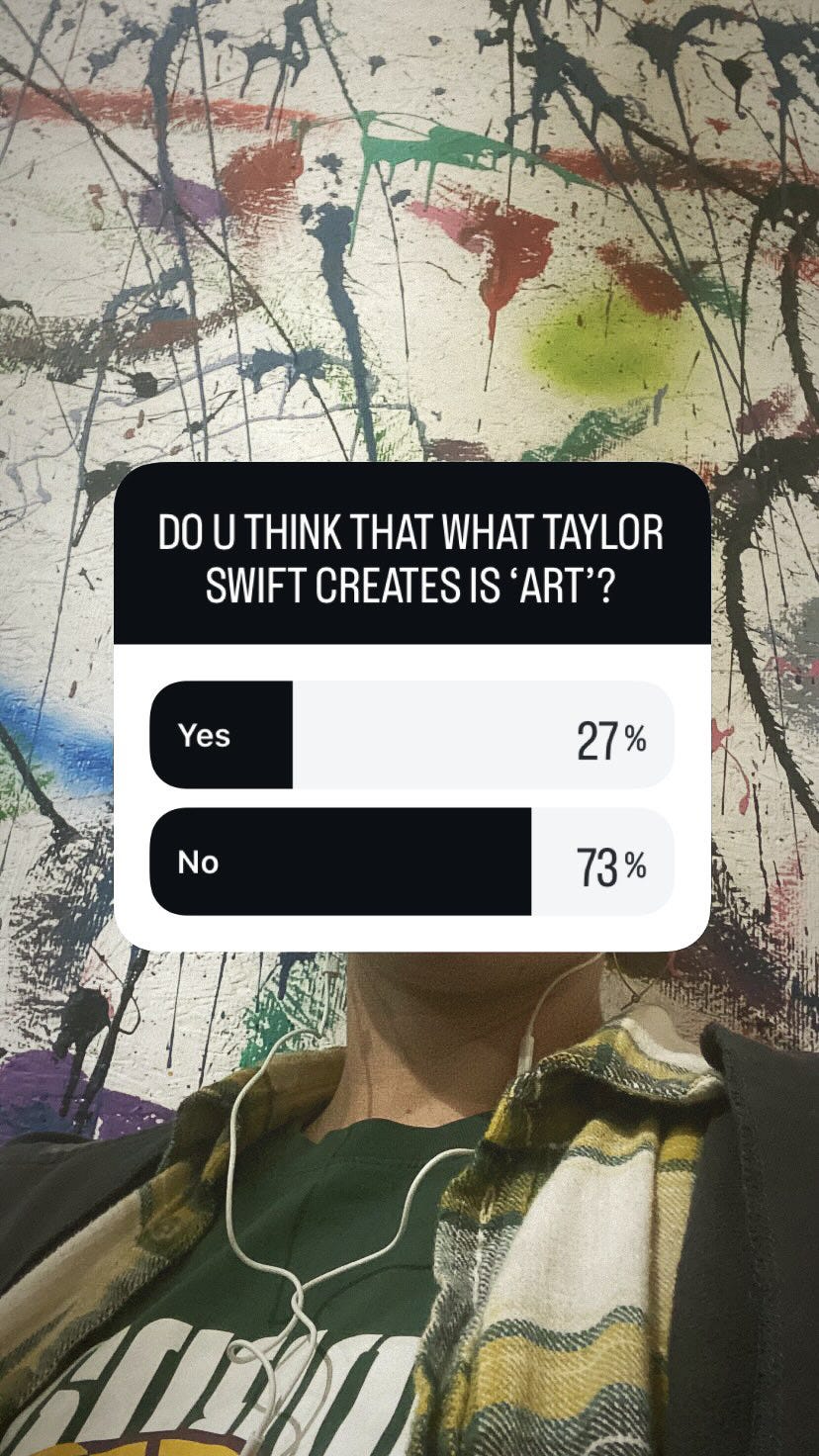Case Study: Taylor Swifts Are Bad for Culture
A social critique of billionaire pop princess Taylor Swift, the mass-marketable, commercial 'American dream'
Disclaimer a: what follows are my opinions.
Disclaimer b: the title of this post is very critical…but I promise, I’m not a Scrooge. I’m just a conscious, observant citizen who wants to leave the next generation w/ a positive legacy.
Disclaimer c: this isn’t personal. I’m not disparaging Ms. Swift as a person. I don’t know her and I’m not judging her. I’m critiquing her career approach, business strategy and commercial products to make a bigger point about how our standards for EVERYTHING seem to have declined over time (and it’s time to raise them again!) I think that celebrities like her should take more responsibility for the influence they have on others and accountability for what they’re promoting.
Celebrities do affect culture, like it or not! I truly believe that the Taylor Swifts of the world represent brutal capitalistic corporations that care more about making as much profit as possible than they do about the level of quality that they’re contributing to the industry, culture and world. And that shouldn’t be rewarded.
I was having an (ongoing) argument w/ some family members about whether Taylor Swift is an artist or not…
…I GET and will readily admit that she IS a mega pop-star and an ultra successful businesswoman…
…but — does that make her an artist?
…is what she contributes to society actually art?
She is a performer, sure…but so are clowns…and 2 year-old beauty pageant contestants…and the dancing sign-holder trying to sell cars…and strippers…
…and I wouldn’t consider any of that art…
What do all of those performers have in common w/ Taylor (on a smaller scale)?
They’re preying on and exploiting the vices of our society to sell their stuff.
They’re perpetuating toxic cultural standards which promote commercializing anything and everything (standards which must change if we’re to have a healthy, quality-focused culture).
Their end goal is making as much money and gaining as much power (through influence) as possible.
Okay, maybe the clowns aren’t doing this…
But…Why Does Her Stuff Sell Then?
I know it sells.
I believe it sells because she’s become a social contagion that people worship. She’s capitalized off of music that encourages incessant dating and breaking up, hooking up and making your entire life about chasing boys or perpetually seeking that chase.
She plays into her generation’s typical issues and focuses on them. She attempts to be relatable and ‘inclusive’. She’s white, American, came from family money and she’s willing to play the soul-sucking Hollywood games.
All of that sells.
Talent and/or merit isn’t necessarily required.
The Definitions of Art & Artist
Keep reading with a 7-day free trial
Subscribe to Empowered BY Mothering (not in spite of it!) to keep reading this post and get 7 days of free access to the full post archives.







